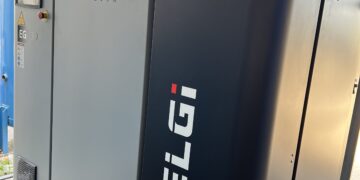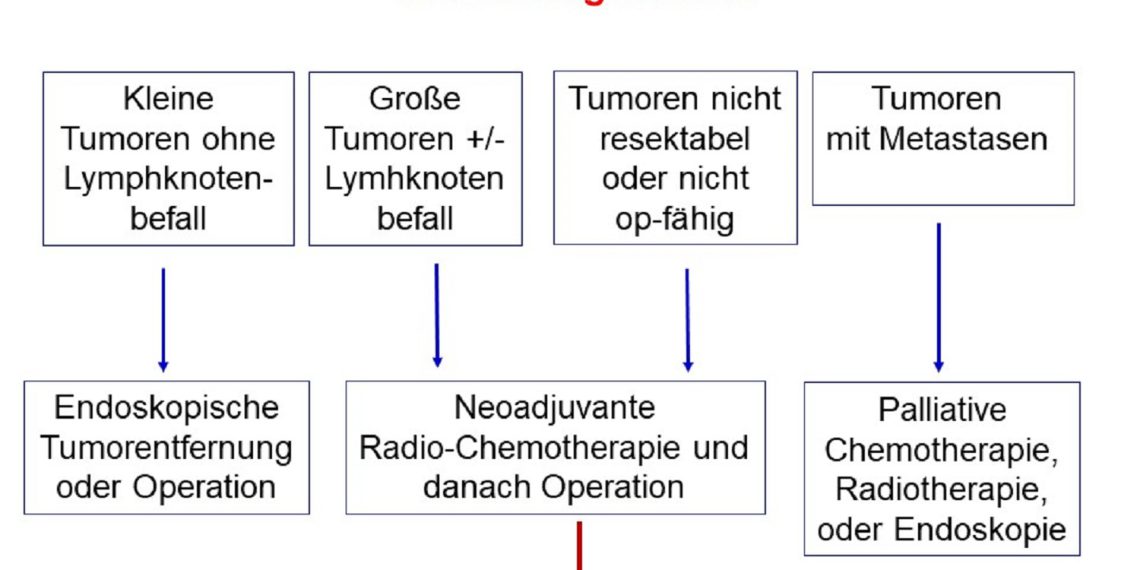For patients with recurrent esophageal or upper gastric cancer, the New England Journal of Medicine reports the successful use of adjuvant immunotherapy as a new and promising treatment option. The results are from the phase III CheckMate 577 trial, and the new therapy has now received European approval.
Researchers at the University Medical Center Mainz, in collaboration with international cooperation partners, have succeeded in discovering a new and promising treatment option for patients with recurrent esophageal or upper gastric cancer. If the current standard treatment, consisting of chemotherapy, radiation therapy and surgery, is supplemented by postoperative drug immunotherapy, the risk of recurrence is reduced and patients have a higher chance of living longer without recurrence of cancer. The results of the phase III CheckMate 577 trial have been published in the renowned journal “New England Journal of Medicine” and have now led to European approval.
It is not uncommon for patients with cancer of the esophagus and upper stomach to develop a recurrence of the cancer shortly after intensive treatment of the tumor that first appeared. Until now, the standard treatment of patients with locally advanced esophageal or upper gastric cancer consisted of a combination of so-called neoadjuvant, i.e. preparatory, chemotherapy and radiation therapy followed by surgical removal of the tumor. However, this combination of therapies has not succeeded in reducing the risk of recurrence for a prolonged period of time.
With the aim of reducing the likelihood of recurrence and thus offering affected patients the chance of longer survival, scientists from the I. Medical Clinic and Polyclinic of the University Medical Center Mainz participated in the international, randomized, double-blind, placebo-controlled Phase III study “Adjuvant Nivolumab in Resected Esophageal or Gastroesophageal Junction Cancer”, or Checkmate 577.
In this study, Prof. Dr. Markus Möhler, head of the gastroenterological-oncological outpatient clinic of the I. Medical Clinic and Polyclinic of the University Medical Center Mainz, and colleagues evaluated a postoperative, so-called adjuvant therapy in patients in whom no pathologically complete remission was achieved and the disease was still diagnostically detectable. For this purpose, they chose an immuno-oncological approach: a drug that specifically supports the immune system after tumor resection and activates it to fight off cancer cells that are still present but not visible, thereby preventing metastases from forming. The active ingredient is an immune checkpoint inhibitor, the anti-PD‑1 monoclonal antibody nivolumab.
This adjuvant immunotherapy, described in detail in the New England Journal of Medicine, had a positive effect in the study participants: they lived an average of 22 months longer and thus twice as long without a recurrence of tumor disease as those subjects who received only a placebo. The scientists at Mainz University Medical Center and the cooperating research teams have thus succeeded for the first time in achieving a long-term disease-free survival advantage in patients with advanced esophageal cancer treated with various therapies.
Following the U.S., Germany and the European Commission have now also approved nivolumab for this adjuvant treatment. There is therefore reason for hope for the approximately 5,550 men and 1,750 women in Germany who develop this rare malignant disease each year. Esophageal cancer is the seventh most common cancer worldwide and the cause of more than half a million deaths each year.

















